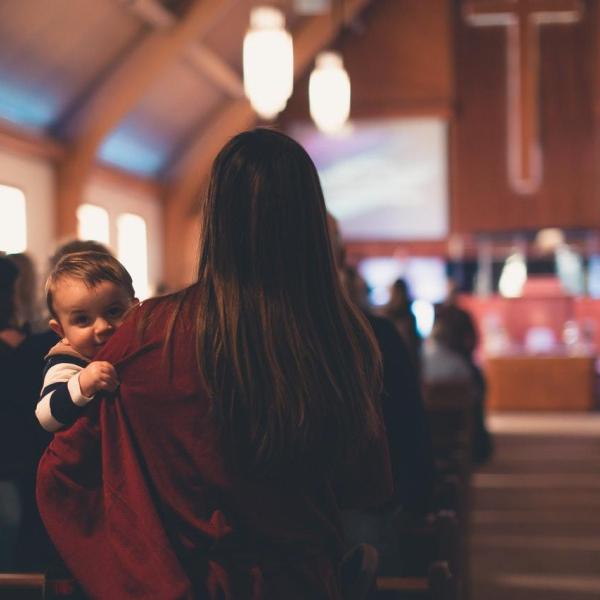Unwrapping Christmas: Films
Let’s dig a little deeper into some of the storylines, themes and character depictions in our favourite Christmas films.
There’s something about the arrival of crisp chilly days that inspire a long walk outside and a return home to a hot drink and a Christmas film. It’s something that seems to epitomise the season, a much-loved family activity that can bring together the generations. What’s your favourite Christmas film? Do you love the same classics each year or eagerly anticipate Netflix’s annual offerings?
Why do we love them so much?
I wonder if part of the reason is that it encourages us to get lost in wonder and nostalgia, drawing us back to the excitement of Christmas as children. Perhaps it’s because it increases our Christmassy ‘feeling’ and is a wonderful way to escape into magical stories and worlds.
I wonder if you’ve ever stopped to consider the storyline of your favourite Christmas films? Most of us probably haven’t paid too much attention to them, because the Christmas films we love are rated U or PG and the whole point is that they’re good, wholesome and family friendly!
But dig a little deeper and you might find that some of these films have storylines, themes and character depictions that could be problematic for some care-experienced children and therefore the families who are loving and raising them.
For example, consider the film Elf, which is one of my favourite Christmas films. The story follows Buddy, who we first see as a crawling baby in an orphanage (which does not look like a homely place to be). He accidentally crawls into Santa’s sack and gets transported to the North Pole where he’s ‘adopted’ and raised by elves. He is not told any of his life story as he grows up, but always feels different. One day his adoptive Dad tells him his whole life story all at once, leading Buddy to travel (on his own) to New York to find his ‘real’ father. He faces multiple rejections by his birth father, but ultimately there’s a happy ending as he saves Christmas and we see his birth father’s heart soften towards him. They live happily ever after.
This article isn’t written as a detailed exposition of this film specifically, but to illustrate why we need to look a bit deeper at Christmas films more broadly. With that in mind, here are a couple of examples of why some parts of the storyline might be challenging:
- For a care-experienced child, the uncertainty around Buddy’s early life could provoke questions and worries about their own story. If Buddy was ‘accidentally’ brought to the North Pole, could that have happened to me? Buddy not knowing his full story until he’s older could perhaps cause children to question what might be being withheld from them by the adults in their lives, thus increasing distrust.
- The film suggests that with enough persistence, ‘happily ever after’ is just around the corner. However, for many care-experienced children, it might not be possible, appropriate or safe for children to reconnect with some or all of their birth family, now or in the future. Even if it is, the reality of what that reconnection looks and feels like is layered with complexity. We may know that a film isn’t real life, and the portrayal is unrealistic, but care-experienced children, particularly those who are younger, may not.
So many Christmas films focus on ideas of home and family. Consider ‘The Grinch’, in which the main character is portrayed as a grumpy, mean creature who wants to ruin Christmas for others. We discover in the film that his behaviour is rooted in the pain of a childhood without family. Or ‘Nativity 2’ where one of the songs is called ‘Everybody’s Got a Dad But Me’. Home Alone can really be quite frightening when you think of how long Kevin is alone for and the danger he could be in, and the thought that you too could be so easily ‘forgotten’ is just as scary. Once you start looking for them, you’ll find that challenging storylines feature heavily in our favourite Christmas films.
What we are not saying is that all Christmas films are bad and should be avoided at all costs. But as adults, we can start to explore what films might be problematic and why that might be. We can begin to understand why watching certain films may trigger a strong reaction.
All children are different. We have four children, three of whom joined our family through adoption. A few years ago, we flew to Uganda to spend Christmas with our great friends and the film Elf was one of those on offer on the plane. One of my children watched the whole film three times on the flights there and back, and it remains one of their favourites (which they watch throughout the year). Another of my children began to watch it, but within minutes complained of stomach-ache and of feeling wobbly but not really knowing why. They needed help to understand where this reaction might be coming from, and together we made the decision not to watch that film at that time.
Here are three ideas from my family to yours that might help you navigate the complexities of Christmas movies this season:
1. Make informed choices
Whilst you won’t have time to watch every film in advance, you can usually find a synopsis online that will give you an idea of themes and the storyline. A helpful starting place might be ‘Common Sense Media’ who are a non-profit organisation whose vision is to help families take charge of their digital choices. Part of what they do is review films, giving a helpful synopsis but also identifying themes and possible triggers, and they provide a forum for parents and carers to share their experience.
If you’re a part of a support group and/or connected to other families raising care-experienced children, ask them! They will understand the why behind you asking and their knowledge could help you make more informed choices.
There will be some films that you will avoid. Other people may not always understand this (or even agree). It’s another example of where parenting children who have had a difficult start in life needs to look different.
2. Creating opportunities to chat
Sometimes you may not need to avoid a film, but instead be prepared to use it as an opportunity for conversation about experiences or life stories. This may impact when and where you watch the film to allow time and space for the child to decompress afterwards if they need.
Instead of asking, “How you do feel about...?”, pondering aloud, “I wonder how the Grinch feels about…” may put less pressure on a child to answer for themselves but gives an opportunity for you to grow in understanding about their feelings and behaviours.
3. Be proactive
Christmas films will probably feature in schools, clubs and churches throughout December. If films are a potential trigger for your child(ren) then have conversations with the leaders beforehand. Perhaps ask them to let you know if they’re going to watch a film, explaining why so you can work together on what’s best for your child(ren).
If you don’t have care-experienced children in your house, but want to support families who do this Christmas, here are three ideas for you:
1. Notice
This Christmas, begin to look through the lens of a care-experienced child as you watch films. Start to notice messages, themes and imagery that might be challenging. When we increase our understanding we are better positioned to respond more helpfully.
2. Ask
Are you planning a Christmas get together with friends or family who are fostering or have adopted, which might include a Christmas film? Perhaps you could ask the adults to suggest films that their children know and love? It shows that you care for their family and acknowledges their expertise.
3. Communicate
If you’re a children’s leader in church and you’re doing a Christmas family film event, or plan to watch a film in Sunday club, communicate well with the parents and carers. Let them know what you’re watching and ask them if there are things you can do to support their child(ren) so they are empowered to decide how best to respond.
----------------------------------------------
As you prepare for Christmas, we invite you to consider donating to Home for Good to help us find a home for every child who needs one. Learn more about our Christmas appeal here.
You might also be interested in

Articles
Reflecting on Good Friday
Despite the outward appearance of a crushing setback, Good Friday was a day of triumph, unveiling God's divine plan and the true nature of his reign.
Read more
Articles
The Church: a community of shared light
Our Northern Ireland and Nations’ Lead, Roger Cooke shares some reflections on fire, community and the Olympic Games.
Read moreI would like to find out what is
going on in my area







